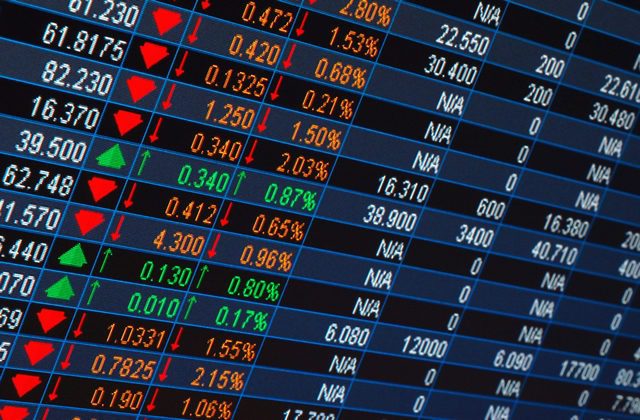Economic Issues
Impact Of New Forex Policy -By Agbo Aboh


In 1986, the International Monetary fund (IMF) requested Nigeria to deregulate her financial system, including the foreign exchange market which was fixed at that time and highly regulated as a panacea for revamping Nigeria’s economy which was suffering from trade disequilibrium by leaving the exchange rate of the Naira to the dollar to be determined by market forces of demand and supply.
As at that time, the naira was exchanging for N1.50 to the dollar. By 1992, the exchange rate rose to N9.50 to the dollar. This rose to N50 to the dollar in 1995 after the further devaluation by the CBN by almost 80% in March 1992 at N18 to the dollar. Before this time, Nigeria’s economy was booming because it could still manage the highly devalued naira. The manufacturing, including the textile sector, automobile assembly plants were in operation in Nigeria. These include the Volkswagen in Lagos, Leyland Truck Assembly in Ibadan, Steyr Motor Assembly in Bauchi, Automobile Manufacturing Company (ANAMCO) in Enugu and Peugeot Automobile Assembly in Kaduna.
But following the devaluation of the naira, Nigeria’s economy collapsed as the result of high naira content of imported raw materials to grow as astronomically and unaffordable by most of the manufacturing outfits those outside the automobile manufacturing. Nigerians failed to see that the devaluation of the naira was a trap by Bretton Woods institutions to keep developing countries perpetually underdeveloped by weakening the purchasing power of their currencies in world trade arena.
Nothing would happen if Nigeria does not devalue her currency, or even appreciate the value of the naira by fixing the rate to the dollar at not more than N80-N100 per dollar at a time when South Africa’s rand and Ghana’s cedi are exchanging at 4 and 15 to the dollar respectively. Gen Abacha pegged the naira at N22 to a dollar for official transactions, while unofficial transactions were fixed at N50 to the dollar. This is because exchange rate is not hundred percent dependent on market forces, but a combination of other forces including political.
This is why China is always at logger heads with the United States of America as the former adopt fixed exchange rate in determining the value of her currency, the Yuan. The government of every country is expected to maintain an exchange rate that is to the best interest of her citizens. Nigeria failed in this regard since 1986. Currency devaluation is a tool used to expand market share in international market for those that invoice their goods and services using their local currencies like China and Japan.
On the 20th June, 2016 the Central Bank of Nigeria (CBN) introduced the new flexible exchange rate determination policy. This is an automatic adjustment mechanism of the exchange rate.
According to the CBN, the objective of the flexible foreign exchange regime is to boost supply of foreign exchange and reduce pressure on the naira instead of the existing controlled foreign exchange with pre-determined supply and exchange rate which will enhance efficiency and facilitate liquidity and transparency in the foreign exchange market. The market is to operate as a single market structure through the inter bank/autonomous window, the exchange rate would be purely market driven using Thomson-Reuters order marching system as well as conventional Dealing Book. The CBN will participate in the market through the periodic intervention to either buy or sell foreign exchange as the need arises. This is another variant of the Open Market Operation (OMO).
There will be Primary Foreign Exchange Dealers (FXPD) who will be registered with the CBN to deal directly with the CBN for large trade sizes on a two –way –quote basis. These primary dealers will operate with other dealers in the inter-bank foreign exchange market.
There will be no pre-determined spread of foreign exchange spot transactions executed through intervention with primary dealers but all foreign exchange spot purchased by the authorise dealer are transferable in inter bank foreign exchange market. The 41 items prohibited from accessing foreign exchange from the official inter-bank foreign exchange market is still inadmissible in the new system.
The CBN may also offer long tenured foreign exchange market forwards contracts of 6-12 month or as my be authorised. Sale of foreign exchange forwards contracts by authorised dealers (Selected Banks) to end users most be trade-backed with no pre-determined spreads. The CBN shall introduce non deliverables over the counter (OTC) naira settled futures with daily rates on the CBN approved FMDO Trading and reporting system. This system is capable of moderating volatility in the foreign exchange rate by moving non-urgent foreign exchange demand from the spot to future market.
The OTC foreign exchange features shall be non standardised amounts and deferent fixed tenors which shall be sold on any date thereby ensuring maturity dates. Proceeds of foreign investment inflows and international money transfers shall be purchased by authorised dealers at the daily inter-bank rates. Non oil exporters can then access their exchange and shall sell their foreign exchange proceed in the inter-bank foreign exchange market.
First Bank, Zenith, UBA, GTB, Access, Diamond, ECMB, Fidelity banks were listed as primary foreign exchange dealers (FXPD). There is second category of dealers to be called non primary dealers which will be engaged in foreign exchange transactions with the primary dealers at the inter bank market. There is also the third category of dealers at the lower retail volume. However other banks protested to the CBN on the need for more banks to be involved, even if they did not meet the above criteria. Accordingly, the CBN issued licenses to 15 banks instead of 10 when it started on Monday 20th June 2016. The earlier circular would have created an uneven playing ground and mass shift by prospective and existing bank customers to the primary dealer banks.
Agbo wrote in from Lagos



















